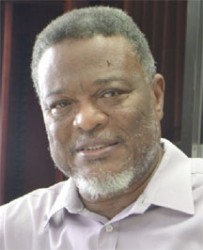The National Assembly last evening committed the Telecommunications Bill and the Public Utilities Commission (Amendment) Bill to a special select committee with the Opposition saying that while they supported the Bills, they had concerns over the power of the Minister among other things.
The Bills had been on the order paper for months following their first reading on August 9, 2012. The Telecommunica-tions Bill provides for the establishment of a telecommunications agency for a regular, coordinated, open and competitive telecommunications sector and for matters incidental thereto and connected therewith.

The new agency that the legislation creates will incorporate into it the National Frequency Management Unit and will function as the technical regulator of the sector, responsible for regulating, licensing the spectrum and other technical matters.
Following its first reading, the Bills were deferred a number of times as Government and the two major telecommunications providers – GT&T and Digicel – held talks to iron out issues regarding the breaking of the more than 20-year monopoly held by GT&T.
Both Government and the Opposition called for the work of the committee to be accelerated so that it is completed within the shortest time.
In presenting the Telecommunications Bill for its second reading, Prime Minister Sam Hinds called it landmark legislation that would place Guyana among the league of countries which have advanced telecommunications sectors. “It will allow for the initiative, innovation and ingenuity of our people,” said Hinds.
He signalled Government’s commitment to further deliberating on the legislation and expressed the hope that its commencement date could be on January 2, 2014. “We want to commit it to a special select committee. Maybe in the new year, January 2nd could be the commencement date for the new telecoms regime in Guyana,” said Hinds.
Speaking on the Bill, APNU front bencher Carl Greenidge said that his party embraced Government’s intention to have the Bill sent to a select committee.
He said that because of the advances in technology, the nature of the various ICT related services is not always easily predictable. He said that it is because of this reason that the legislation must be flexible and accommodating to changes that may spring up.
Greenidge said that it seems to him the Bill is more weighted towards regulation than it is to IT development.
He said that the powers granted to the Minister are astonishing to him and said that the Minister has functions which would more seem to belong to officials in the regulatory agency that he will oversee.
He said that the question of the types of sanctions that the legislation brings has to be looked it. He said that sanctions and incentives have to be consistent with what is on the market. He is of the view that the Bill focuses too much on the present and the past and not on the future.
He said that the Bill needs have provisions dealing with conflicts of interest in the sector among actors and regulators and feels that the legislation hardly addresses this concern.
Speaking on the Bill, the Alliance for Change in the person of Member of Parliament Trevor Williams said that the Bill will open up the sector to competition and as a result bring prices down. But he also voiced concern about the power to be resident in the Minister.
“We seem to be ending the monopoly but monopolising power in the Minister,” he said.
He said that the consideration within the select committee is necessary since sections of the legislation are vague.
Breaking GT&T’s monopoly on the telecoms sector –particularly the international gateway – has long been on the agenda. The initial 20-year monopoly ended in 2011 and talks between the government and the two telecoms companies have been going on since then.





